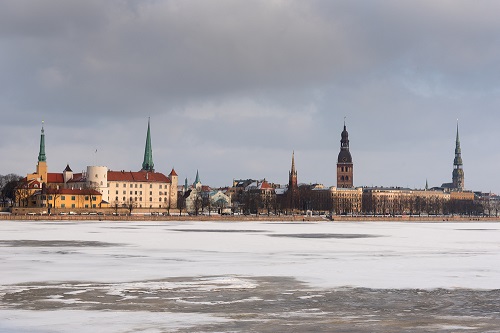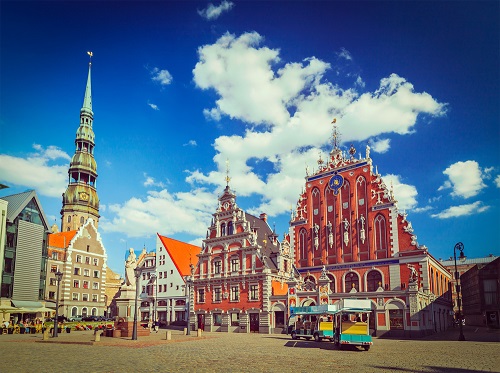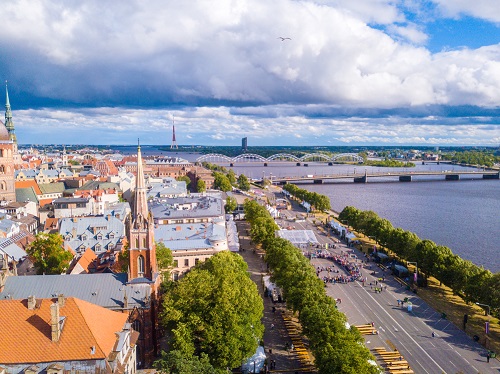The Baltic state of Latvia has universal healthcare, funded by government taxation, but it does not rank well in terms of healthcare standards. You may therefore choose to take out private cover, rather than to give birth under the public system. However, maternity care has been improving in recent years.
Generally, the state will cover medical treatment via a co-pay system, but if you are a pregnant woman being treated in connection with your pregnancy, you will not have to pay a fee. We will look at some of your options below.
How to decide on a birth plan
A birth plan is a list of what you would like to have happen during labour and afterwards. It is written so that your doctor knows what your wishes and expectations are.
- Where do you want to give birth?
- Who do you want to have with you (e.g. your partner)?
- What kind of birth do you want (e.g. vaginal birth or a Caesarian)?
- Do you need any birthing aids?
- Do you want pain relief, and if so, what kind?
- What kind of birthing environment would you prefer?
Provision, particularly in the private sector, is comprehensive when it comes to birthing methods, with both vaginal and C-section delivery available, as well as home births and water birthing.

Maternity care in Latvia
In 2018, the infant mortality rate in Latvia was at about 3.3 deaths per 1,000 live births, and it has been steadily declining over the past couple of decades. You can rest safe in the knowledge that Latvia is a comparatively safe place in which to give birth.
Your first stop will be your GP, who can confirm the pregnancy and set you up with a series of appointments relating to blood tests and ultrasounds. Under state health insurance, you are entitled to:
- Consultations with a gynaecologist, midwife or family doctor (who must be registered with the national scheme)
- Determination of body mass index
- Fetal heartbeat monitoring
- Laboratory examinations
- Fetal ultrasound
- Other services according to the national healthcare programme
- Postpartum care for 42 days after labour
This is free, as long as:
- You have an EHIC card
- You are a citizen of an EU nation
- You have residency and are registered with the national scheme
Under the public scheme, you will be directed to a local hospital, such as the Riga Maternity Hospital, which offers both public and private care. It also offers prenatal classes in Latvian, Russian and English. You should be able to find a range of both prenatal and postnatal classes in Latvia.

The rules surrounding home birthing have recently changed. Now, the Ministry of Health has declared that only low-risk expectant mothers will be able to give birth at home in Lithuania. If this is your chosen option, you will still need to submit an application with a medical establishment and sign a contract, under which you will receive consultations before and after the birth, as well as assistance during the birth. You will also need to be visited by an obstetrician after the birth. Additionally, you will need to prove that you have certain facilities for the delivery:
- A clean and warm room
- Hot water
- Power
- A hard surface (for resuscitation of the baby, in case of emergency)
- Ambulance access within 30 minutes of the local hospital
If you are under 18, over 40, or are giving birth for the first time, home delivery is not allowed.
You will be able to access a doula in Latvia. The Latvian Alliance of Doulas (Latvijas Dūlu apvienība) was established in 2010 and has a list of members; contact them if you would like the services of a doula.
Most midwives operate in the public system, but there is at least one private midwifery practice in Latvia.
You will be guaranteed 56 days of leave after the birth, as well as 56 days before the birth. This totals 112 days (roughly 3.5 months) of paid maternity leave. Fathers are guaranteed 10 days of paid parental leave after the birth of a child.
Birth certificates are obtained from the registry office. You may request a copy of a certificate by completing an application and presenting a valid identification, either in person or online through the Latvian State Portal.
Will the baby be a Latvian citizen?
A child will be granted Latvian citizenship if one of their parents is a Latvian citizen at the time of their birth.

